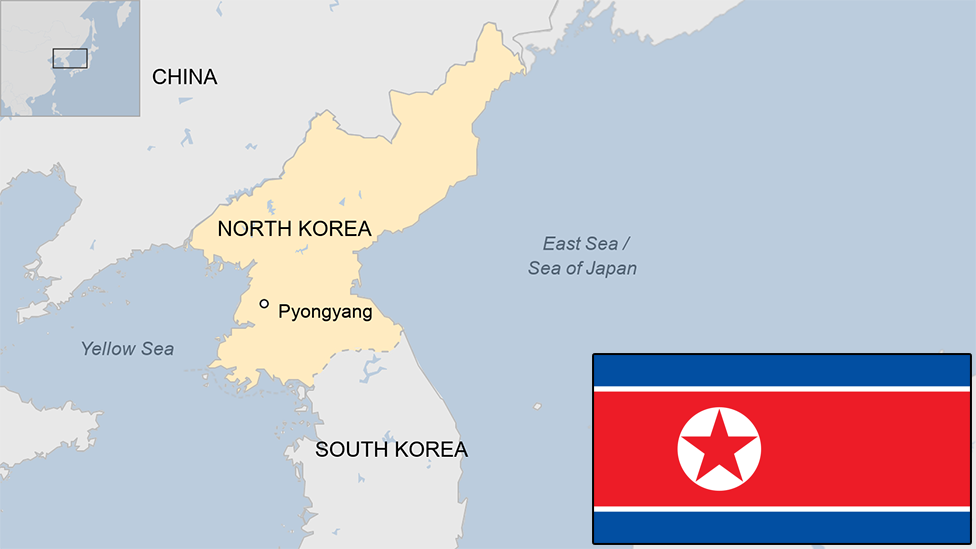Images show North Korea sealing its border with China
- Published
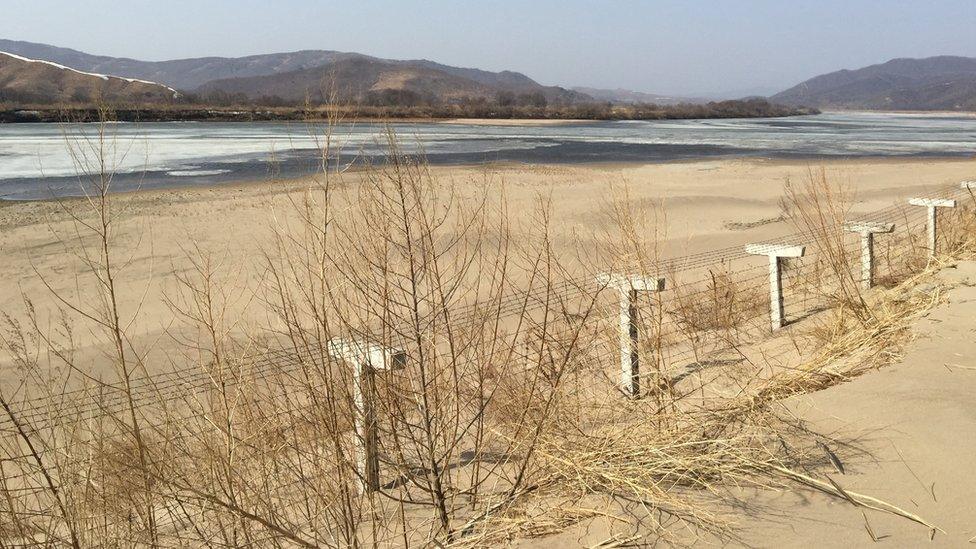
There has been a major ramping up of security along the border between North Korea and China. This image shows North Korea from an area near the Chinese border city of Hunchun in 2015
North Korea has used the Covid-19 pandemic to seal up its northern border with China, new images from a leading human rights group show.
Human Rights Watch (HRW) describes a situation which has seen "intensifying repression", with "drastically reduced" cross-border movement and trade.
In the research, North Koreans spoke of the increasingly restrictive measures.
UN member states should "immediately address" North Korea's isolation and humanitarian crisis, HRW stresses.
North Korean leader Kim Jong Un has reinforced a crackdown on border security in recent years, coinciding with the pandemic.
The border was only reopened a few months ago, largely to improve trade with China.
The report, entitled A Sense of Terror Stronger than a Bullet: The Closing of North Korea 2018-2023, external, describes the "overbroad, excessive, and unnecessary measures during the Covid-19 pandemic".
Focusing on satellite images, it shows authorities in North Korea constructing 482km (299 miles) of new fencing in the areas it investigated, and enhancing another 260km of fencing which was already in place.
Taken between 2019 and 2023 and covering about a quarter of its northern border, the images also detail things like new guard posts and the creation of buffer zones - things which further restrict life in the country.

In this image, we can see that in March 2019, on the east bank of the Tumen River, a primary fence is visible - but is interrupted with a large gap for the Hoeryong stream. Three years later, in April 2022, a bridge had been added, along with a secondary fence, creating a buffer zone
Along with the border infrastructure has come a more authoritarian enforcement of rules - including a shoot on sight order for border guards.
HRW noted a 20-fold increase in the number of border security facilities in the area observed, with guard posts rising from just 38 to more than 6,500.
Lina Yoon, senior Korea researcher at HRW, said North Korea's leader Kim Jong Un should "end the policies that have essentially made North Korea a giant prison, reopen its borders for trade, relax internal travel restrictions, and allow monitored international emergency assistance".

This image shows a primary and secondary fence which were set up along the Yalu River, with guard posts also installed. The changes took place between May 2019 and September 2022
One escapee, who spoke to her relative back home, said rice and wheat could no longer be smuggled into the country.
"Not even an ant can make it across the border now", her relative told her. This has also made it harder for North Korean escapees to send money back home to support their families, the report says, further increasing the suffering of the North Korean people.
Another person who had left the country described the situation for their relatives in late 2022, when many parts of the world were facing tough Covid-19 restrictions.
"My [relative] said now people are more worried of starving to death than of dying of Covid-19," they said.
"They are all worried of dying from simple diseases."

The crackdown has also stopped the flow of cash from people in South Korea to their relatives and contacts in the North.
HRW estimated that by the start of 2023, only about one in 10 money brokers were able to send money across, when compared to the situation pre-pandemic.
Also highlighted in the report is the toll UN sanctions, imposed on Pyongyang in 2017 following nuclear tests, have had on people.
The report calls them "broad-based", and says they have "exacted a toll on the population at large by undermining people's rights to an adequate standard of living, and thus to food and health".
"This had an especially hard impact on women, the main breadwinners in most households, by reducing the activities in the markets in which they traded."
One former trader who had been in contact with relatives in North Korea said a relative used to catch squid and crabs, and was able to live off the informal trade with China.
Because of Covid-19 and the sanctions, this trade was stopped - and his relatives had to sell for domestic consumptions for a much lower return, making it "hard to survive".
You may also be interested in:
Myung-hui and her daughter Songmi
Related topics
- Published30 January 2024
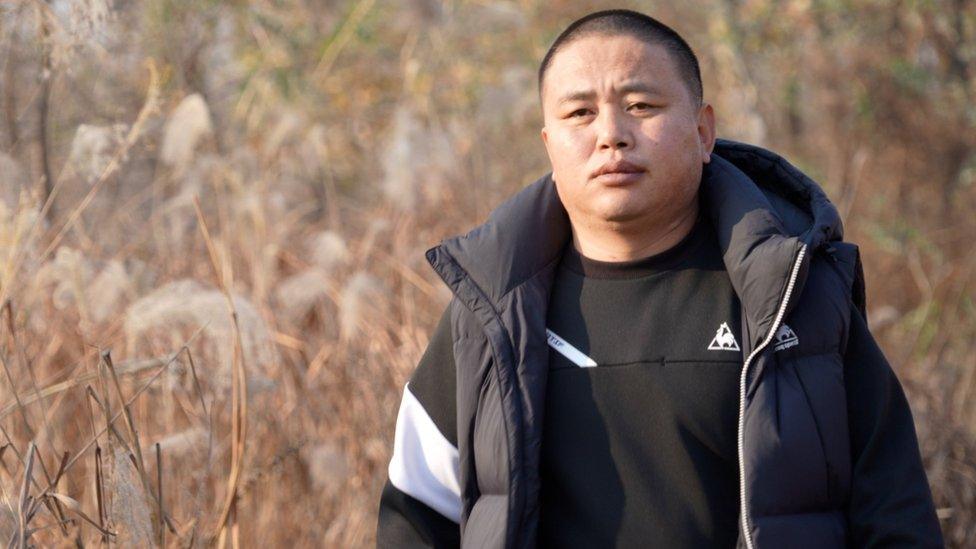
- Published8 December 2023
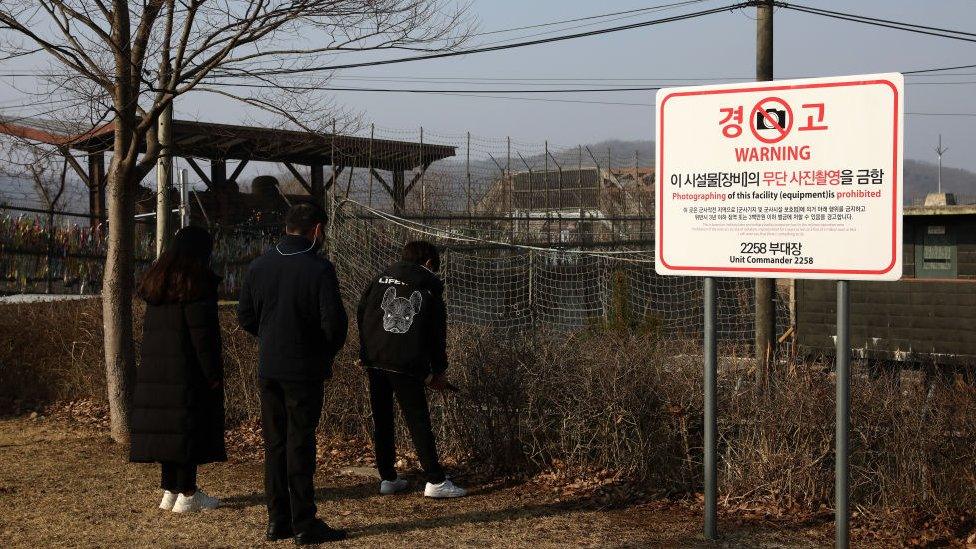
- Published5 December 2023
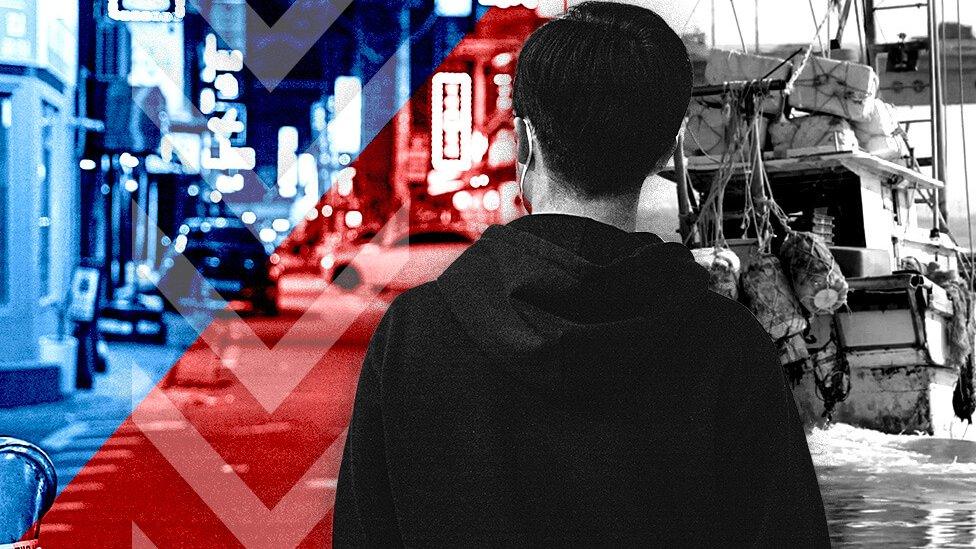
- Published6 April 2023
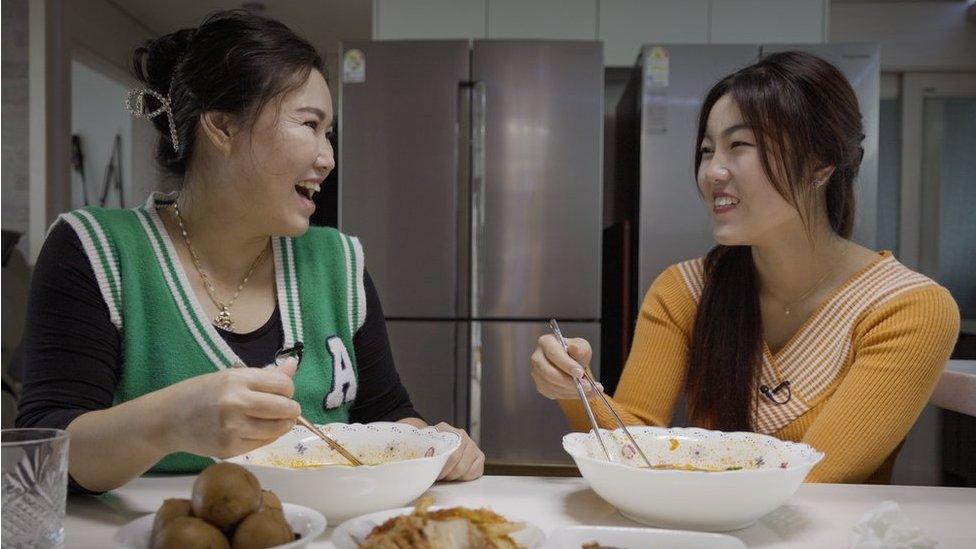
- Published19 July 2023
